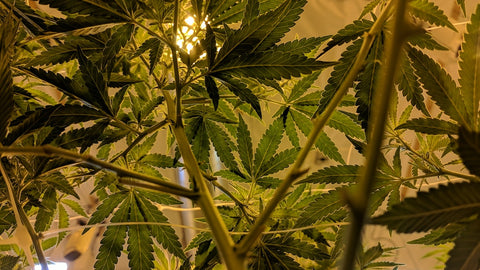Picture this: you're sitting in your favorite chair, relaxing after a long day, and suddenly your mind starts to wander. Your thoughts become more creative, your senses feel heightened, and you start to feel a sense of euphoria. Ah, the cannabis high. But have you ever wondered what actually happens in your brain when you consume cannabis? Let's take a dive into the fascinating world of cannabis and the effects it has on our brain.
The Endocannabinoid System: Unlocking the Mystery
Before we can understand how cannabis affects the brain, we need to familiarize ourselves with the endocannabinoid system (ECS). The ECS is a complex network of receptors, enzymes, and endocannabinoids that are found throughout the body, including the brain. It plays a crucial role in maintaining balance, or homeostasis, within our bodies.
Within the ECS, there are two primary receptors: CB1 and CB2. CB1 receptors are primarily found in the brain and central nervous system, while CB2 receptors are more abundant in the immune system. When we consume cannabis, the active compounds, known as cannabinoids, interact with these receptors, leading to a range of effects.
The Two Main Players: THC and CBD
When it comes to cannabis, the two most well-known cannabinoids are THC (tetrahydrocannabinol) and CBD (cannabidiol). These compounds have different effects on the brain due to their interaction with the CB1 and CB2 receptors.
THC is the primary psychoactive compound in cannabis and is responsible for the euphoric "high" that many people associate with the plant. When THC binds to CB1 receptors in the brain, it activates a cascade of chemical reactions that result in the release of dopamine, a neurotransmitter associated with pleasure and reward.
On the other hand, CBD does not produce the same psychoactive effects as THC. Instead, it interacts with CB2 receptors and other receptors in the brain, leading to a range of potential therapeutic benefits, such as reduced anxiety and inflammation.
The Effects on Memory and Cognition
One of the most well-known side effects of cannabis use is its impact on memory and cognition. Have you ever experienced the infamous "cannabis brain fog"? Well, it turns out that THC is the culprit behind this temporary cognitive impairment.
When THC binds to CB1 receptors in the hippocampus, a region of the brain responsible for memory formation, it disrupts the normal functioning of this area. This can result in short-term memory problems and difficulties with learning and attention. However, it's important to note that these effects are usually temporary and wear off as the THC is metabolized by the body.
The Role of Genetics
Did you know that your genes can influence how cannabis affects your brain? It's true! Variations in certain genes can impact how individuals respond to cannabis, including their susceptibility to addiction and the intensity of the high.
For example, a gene known as AKT1 has been found to play a role in the psychoactive effects of THC. Individuals with a specific variation in this gene may be more prone to experiencing paranoia and anxiety when consuming cannabis. On the other hand, variations in the COMT gene can affect how quickly THC is broken down in the body, leading to differences in tolerance and sensitivity.
The Entourage Effect: More Than Meets the Eye
While THC and CBD are the stars of the show, cannabis contains hundreds of other compounds, including other cannabinoids, terpenes, and flavonoids. These compounds work together in what is known as the entourage effect, enhancing and modulating the effects of each other.
For example, the presence of certain terpenes can influence the way cannabinoids interact with receptors in the brain, leading to variations in the overall experience. Some terpenes may promote relaxation and reduce anxiety, while others may have a more energizing effect. The combination of these compounds is what gives different cannabis strains their unique characteristics.
So, What Does It All Mean?
Understanding how cannabis affects the brain is a complex endeavor. It involves the interaction of cannabinoids with the endocannabinoid system, the influence of genetics on individual responses, and the intricate dance of compounds within the plant itself.
While cannabis can produce a range of effects, both positive and negative, it's important to remember that everyone's experience is unique. Factors such as dosage, strain, and individual physiology all play a role in how cannabis affects the brain.
So, the next time you find yourself enjoying the wonders of cannabis, take a moment to appreciate the fascinating science happening in your brain. And remember, knowledge is power, so stay curious and stay informed!
Happy toking!



